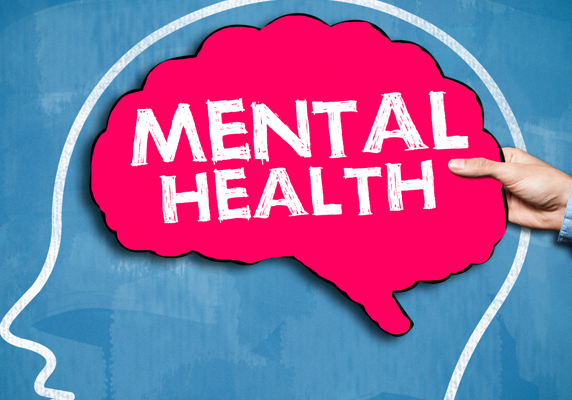
It’s Bell Let’s Talk Day – a day that creates awareness around mental health initiatives. This topic is so important, particularly when it comes to finances, as money problems and mental health are often interconnected.

Debt frequently triggers stress, which can reduce resilience against mental health problems. And on the other side of the coin, certain mental health conditions can make it much more difficult to manage finances and spending.
We’re breaking exactly how debt affects mental health and solutions for ending the stigma.
When Debt Triggers Stress
Stress is a known factor for aggravating mental health conditions, such as depression or anxiety. And for some people, debt can be a major source of stress.
Certain circumstances can be extremely overwhelming, such as:
- Carrying a high amount of debt
- Being unable to pay your bills
- Living paycheque to paycheque
- Dealing with unexpected expenses
- Struggling to save money for short and long-term goals
- Having creditors call you
- Having collection action taken against you, such as a wage garnishment, a lien, or a frozen bank account
- And so on.
According to the Government of Canada, 48% of Canadians say they’ve lost sleep because of financial worries. 44% say it would be difficult to meet their financial obligations if their pay is late.
CMHA (the Centre for Mental Health and Addictions) Central executive director Sean Miller told Pembina Valley Online that while money isn’t the answer to everything, it does answer a lot of problems. Living within your means and below your means can greatly increase a positive state of mental health.
Too much debt — and no way to pay it — can trigger high feelings of stress, which can in turn contribute to mental health issues.
When Mental Health Conditions Trigger Debt
In some cases, certain mental health conditions can contribute to financial troubles.
For instance, a person with borderline personality disorder (BPD) may struggle with impulsive, self-destructive behaviours, such as spending recklessly.
People with bipolar disorder may charge huge amounts on credit cards during a manic episode.
People dealing with depression may not have the energy to go to work, which can result in lost income. For some in this situation, even the act of paying a bill can seem like too much effort.
If mental health conditions begin to affect work performance, people might also lose their employment and lose the will to find something new.
In these cases, debt or other financial issues may be a by-product of the condition but will still need to be dealt with.
Solutions to Deal with Debt
Debt can seem like a huge weight overhead. It’s easy to ignore or deny.
However, the earlier it’s dealt with, the more options you have. Rather than ignoring debt or financial difficulty, the best approach is to seek out help from a financial counsellor. A good counsellor can help navigate the situation, including:
- Helping you understand different forms of debt: secured vs. unsecured. Not all debt is equal. Some kinds of debt are easier to manage than others.
- Creating a realistic plan to get out of debt. Stress is often exasperated by feeling like there is no way out, but with a counsellor in your corner, you will have someone on your side.
- Avoiding cycles of more debt. Financial troubles can often spiral if left unattended.
- Consolidating debt into one single, monthly payment with a fixed interest rate.
- Providing access to same-day loans that can help pay for an emergency.
- Credit counselling will help build and reinforce good credit habits for the future.
Financial counselling is often good to do side-by-side with other forms of mental health therapy as well, particularly if the mental health condition is triggering debt.
The good news is that seeking help is often the most difficult step. Once you take that initial step, it’s much easier to take the next one, and the one after that, because you have someone on your side.
If you or a loved one is dealing with debt, please know that help is available. At Prudent Financial, we offer equity loans for people with bad credit, good credit, and everything in between.
We can help resolve problem debt and create a financial plan for the future.
Call 1-888-852-7647 or visit www.prudentfinancial.net for a free consultation.
On Bell Let’s Talk Day, Bell will donate more towards mental health initiatives in Canada by contributing 5¢ for every applicable text, call, tweet, social media video view and use of their Facebook frame or Snapchat filter. Learn more at https://letstalk.bell.ca/en/bell-lets-talk-day.
